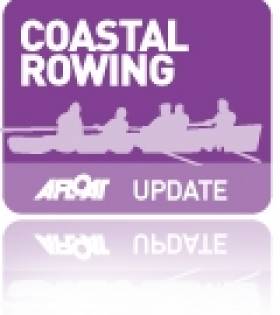Displaying items by tag: Bantry 2012
Bantry 2012 Launches 'Seamanship Challenge' this Month
#BANTRY2012 – A spectacular display of seamanship for Cork this Summer will be officially launched by Minister for the Marine Simon Coveney TD on January 27th when details of the Bantry 2012 Challenge are revealed. As well as a top sporting story organisers say it's also a tale of how tight knit coastal communities across the world have forged strong interantional links thanks to an initial idea in West Cork.
300 competitors from 16 nations are expected in July when replicas of the Bantry Bay longboat, the oldest surviving vessel in the French navy are raced under sail and oar.
The international crews will take part in a week long event in ten events both on and off the water. The prestigious event for the West cork venue is known as the 'Atlantic Challenge Bantry Bay Gig World Championships'.
Two years ago, as previously reported in Afloat, the Bantry Bay crew, soared in second place, while representing Ireland in the Atlantic Rowing Challenge in Midland Canada.
Competing on Lake Huron, one of the five Great Lakes the Bantry Bay Crew displayed huge amounts of physical and mental strength as they accomplished first place in their first three races.
The Atlantic Challenge is held every other year and sponsors a friendly contest of seamanship in Bantry Bay gigs. Founded by an American native Lance Lee, the Atlantic Challenge aims to build trust among nations and form a community of youth and adults from many countries, while also encouraging the practice of traditional maritime skills.
The boats measure almost 40-foot in length and hold 13 crew. Each boat uses a mainsail, foresail and mizzen.
The competition starts in Bantry on July 21st.






























































